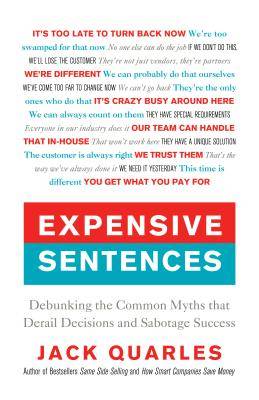
National unemployment rates are down to seven-year lows and hiring in many industries is intensifying. Although a rise in employment signals healthy business growth, it also brings retention challenges. With a job market beckoning skilled talent, hiring managers should be on the lookout for restless workers who may be tempted to change organizations.
When a valued employee hands in a resignation letter, your first reaction may be to make a counteroffer. It’s only natural for you to want to keep good workers around, especially after investing time and resources into their career development. Also, most organizations aren’t prepared to lose and replace experienced staff members who have legacy knowledge and a deep understanding of the corporate culture.
However, throwing money at a staffing issue is never the best solution. Here are seven reasons you should avoid making a counteroffer:
1. Chances are it won’t last.
Extending a counteroffer to an employee who has already decided to leave is a temporary solution to a long-term problem. If workers are prepared to leave now, they will be willing to leave later, too — and many do.
2. Money probably isn’t the answer.
If your employee hasn’t requested a raise and you’ve checked to make sure you’re offering competitive compensation with a credible salary resource —such as the 2015 Salary Guide from Robert Half — then a counteroffer probably won’t do the trick. An employee who is willing to leave your organization for more money is likely leaving for other reasons, too
3. Employee happiness is key.
Surveys have shown that the most important element of job satisfaction is typically not financial, but psychological: Everyone wants to feel fulfilled at work. Employees who feel undervalued or overchallenged, or those who seek more job growth opportunities, may hit a wall in your organization if you haven’t addressed these needs. No amount of money is likely to help.
4. Holding on can cost you big.
A counteroffer can alter the compensation structure that you may unwilling or unable to accommodate. A recent Robert Half survey shows only 21 percent of polled chief financial officers said they’ve made counteroffers. Of this small segment, 34 percent have been forced to raise salaries for other workers. Salary increases should be based on merit, experience and performance, not management duress caused by a resignation letter.
5. Mutual trust can be compromised.
If an employee is willing to use a competitor’s offer as leverage, your ability to trust the worker may be affected. Not only will your relationship be compromised, but you will have trouble moving forward together knowing that he or she could threaten to leave again in the future.
6. A counteroffer is reactive, not proactive.
If you’re looking to avoid the counteroffer issue, don’t wait for your star employees to start researching where the grass is greener. Offering your staff at- or above-market pay means you can get an edge in the competitive hiring market without worrying you’ll lose your best players to another company. Also, don’t fall behind in providing regular performance reviews and issuing raises, competitive benefits, opportunities for promotion and other incentives. Also consider how your vacation policy matches up against other companies. Do you offer telecommuting or flextime to workers when possible? Work-life balance is an important consideration in any employee’s life, so make it a priority in your retention plan.
7. Sometimes, staff turnover can be a good thing.
Turn a negative into a positive. When you receive a resignation letter, consider promoting a budding lower-level employee who shows promise. Or, if your organization could benefit from a different perspective, try hiring fresh talent. Most importantly, focus on moving forward rather than lingering in the past and harboring bitterness.
A counteroffer is rarely the right call. You can better serve your staff and your organization by strengthening your retention strategy. Keep tabs on employee satisfaction and individual workloads.
Stay up-to-date with salary and nonmonetary compensation. Value your staff as a whole instead of trying to hold onto one valuable employee. You may lose a good worker today, but he or she could end up coming back to you anyway, so make the departure as amicable as possible.
Joe Franco is the Las Vegas division director for Robert Half Finance &Accounting, the world’s first and largest specialized staffing firm. He joined Robert Half in 2007 and has more than 14 years of experience in business development and financial staffing.







